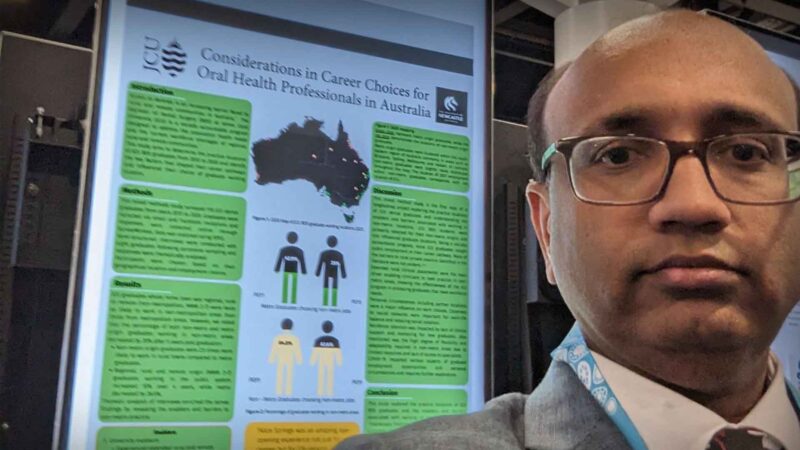ENHANCING OCCUPATIONAL THERAPY SERVICE PROVISION WITH MILITARY VETERANS
With
Carol McKinstry,
Professor of Occupational Therapy &
Deputy Dean, Rural Health School,
La Trobe University,
Bendigo, Victoria, Australia
RESEARCHER PROFILE
Filmed Online | April 2025
Carol McKinstry is Professor of Occupational Therapy and Deputy Dean with La Trobe University’s Rural Health School at the Bendigo campus. She is currently Chair of Academic Board and member of University Council.
After completing her Bachelor of Occupational Therapy in Melbourne, she returned to Bendigo to work in local health services, where she developed a strong foundation in rehabilitation, assisting individuals recovering from strokes, accidents, trauma, chronic pain, and spinal cord injuries.
Prof McKinstry was instrumental in the development of the occupational therapy course at the La Trobe University’s Bendigo campus and also the establishment of the Rural Health School.
Prof McKinstry’s research focus is on health workforce, particularly developing a sustainable rural health workforce through recruitment of rural students for health courses, innovative and flexible delivery of health courses, telehealth and emerging areas of practice for occupational therapists.
She is particularly interested in addressing the needs of returning military service members, especially in rural areas where access to services is often limited. Motivated by her upbringing in a regional area, Prof McKinstry is passionate about ensuring equitable health services for those living in rural communities, aiming to tackle workforce shortages and improve health outcomes for these populations.
She is a current board director of Occupational Therapy Australia having been the past president between 2020-2024. She is on the Board of Bendigo Health and was on the Rochester and Elmore District Health Service Board for nine years, also serving as Board Chair and appointed as Life Governor.
Although not excelling in any particular sports, she has had a long involvement with a number of sports at a club and association/organisational board/committee level. She was the first female chair of the Bendigo Football Netball League in its 140 year history and is a life member of several local sporting organisations. Prof McKinstry looks to combine her health background and love of sport, particularly in the areas of participation in sport for all ages to improve health and wellbeing.
Source: Supplied and supplemented
You Might also like
-
Access to dental care for priority populations
Professor Dileep Sharma is a distinguished dental educator and researcher who currently serves as Professor and Discipline Head of Oral Health at the University of Newcastle, Australia. With over two decades of experience spanning clinical practice, research leadership, and academic mentorship, Professor Sharma has established himself as a leading authority in oral health education and interdisciplinary research.
-
Behavioural science in cancer screening, control and communication
Dr Dodd has an established international reputation as a behavioural scientist in cancer control and communication. Since completing her PhD in 2016, Dr Dodd has been awarded a three-year University of Sydney Postdoctoral Research Fellowship (2018-2021) and a three-year Research Fellowship at The Daffodil Centre (current). Dr Dodd is the co-chair of the ‘Strengthening and optimising approaches to cancer prevention, screening, and early detection’ hub at The Daffodil Centre (with more than 130 staff and students).
-
Interventions for improving outcomes of children who are deaf or hard of hearing
Professor Teresa Ching is a Conjoint Professor at NextSense Institute and Macquarie University, and an Honorary Professor at the University of Queensland in Australia. Her current research focuses on devising culturally sensitive practices in early detection and intervention to maximise children’s outcomes. Working with international colleagues, her current research is also directed towards developing global guidelines and recommendations for hearing screening beyond the newborn period, so that all children can benefit from early detection and intervention. The ultimate goal is to attain equity of care and outcomes for all children with hearing difficulties.

 https://orcid.org/0000-0001-6383-6313
https://orcid.org/0000-0001-6383-6313


